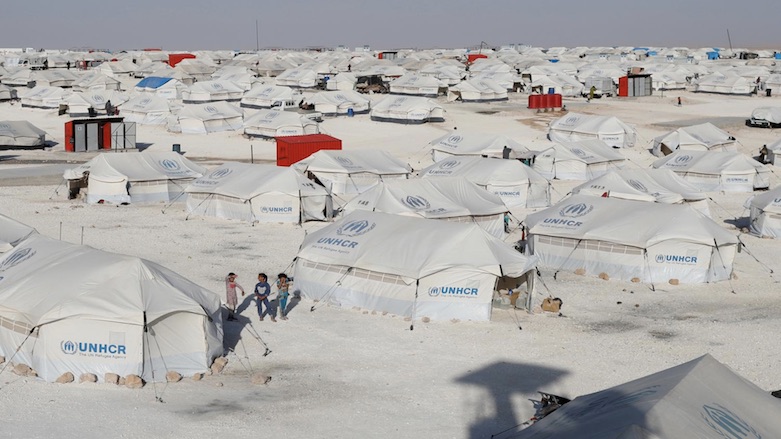UN: 10,000 children trapped in Raqqa are ‘suffering’

ERBIL, Kurdistan Region (Kurdistan 24) – As the war against the Islamic State (IS) in Syria continues, the United Nations on Friday warned half of the estimated 20,000 civilians trapped in Raqqa are children.
Fran Equiza, an official working with the United Nations Children’s Fund (UNICEF), said there were 10,000 children stuck in the northern Syrian city without access to fresh water, electricity, and food.
The US-backed Syrian Democratic Forces (SDF), spearheaded by the Kurdish People’s Protection Units (YPG), is advancing against IS in Raqqa.
The Kurdish-led offensive has successfully freed 60 percent of territory from the militant group in their last major stronghold and de facto capital in Syria.
For civilians trapped in the crossfire, especially children, the trauma they suffer is “absolutely staggering,” Equiza said.
“I was completely overwhelmed,” he told the Associated Press following a visit to three displaced person camps in northern Syria.
“There are 10,000 children trapped in Raqqa in extremely dire conditions,” the UNICEF official warned.
The children continue to live with “no electricity, no water, probably very little food…and the battle [in Raqqa is ongoing] almost every day,” Equiza said.
As the US-backed forces progress against the jihadist group in Raqqa, thousands of civilians are finding it difficult to flee the city.
IS has reportedly placed mines around the city to prevent people from escaping and often use civilians as human shields against US-led coalition air strikes.
“The level of suffering, losing friends, relatives, family of these children is absolutely staggering,” the UNICEF representative underlined.
Equiza stressed the importance of helping people in Raqqa, “especially the children [who] have no responsibility whatsoever.”
“We need support in order to be able to provide these children the rights they are entitled,” he concluded.
Editing by G.H. Renaud
